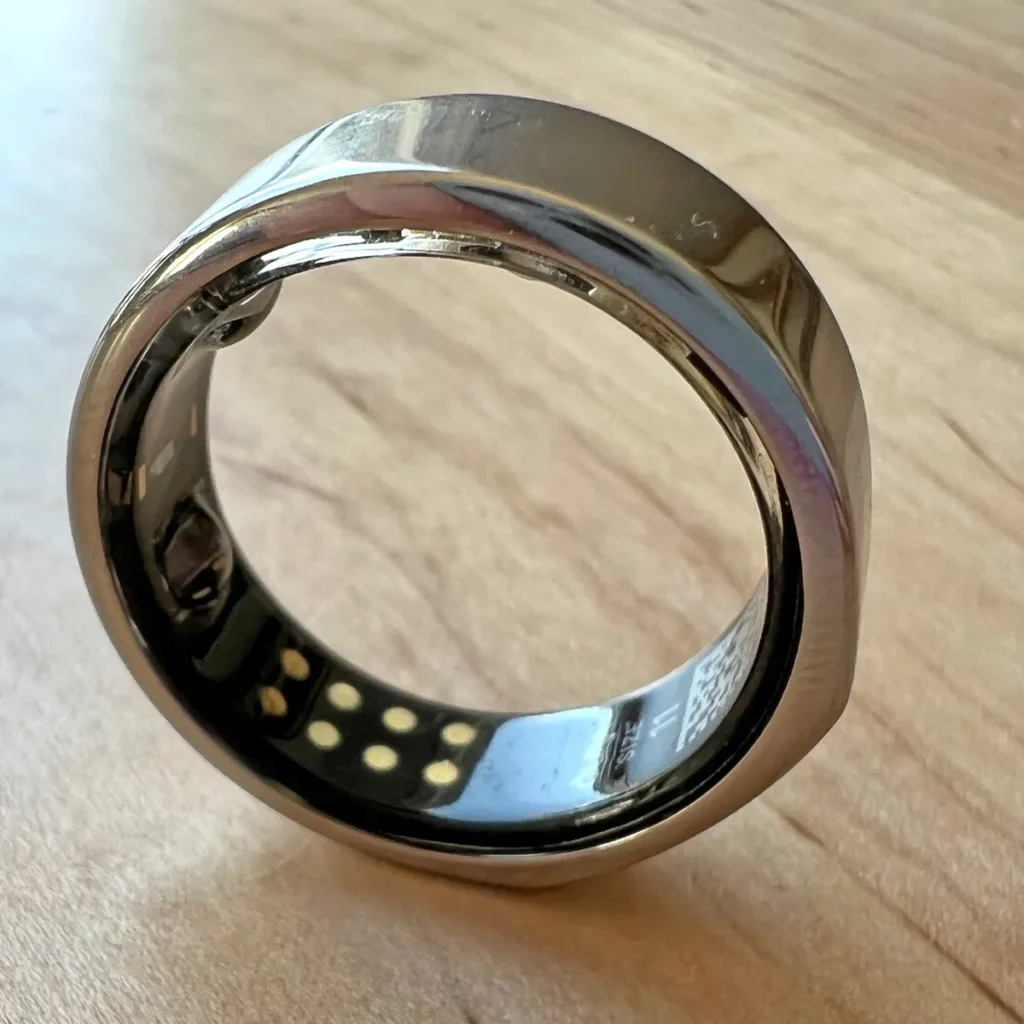A smart ring beloved by A-listers, including Gwyneth Paltrow, has been hailed as a potential new tool for predicting illness. The Oura Ring is a wearable device featuring three infrared sensors that measure heart and breathing rates, an accelerometer to track movement, and a body temperature monitor. New research suggests this technology could be useful in predicting ill health by monitoring sleep data.
A study utilizing data from five million sleeps across about 33,000 users of smart rings was published in the journal npj Digital Medicine on June 20. The study discovered that sleep data can reveal details regarding possible health issues. Professor Benjamin Smarr of the University of California, San Diego, who is a data science expert and co-author of the study, said, “We found that small changes in sleep quality helped us identify health risks.” Wearables are a great tool for helping us identify dangers that we may otherwise overlook because those small changes wouldn’t be noticeable on a typical night or on a questionnaire.”
The researchers discovered that sleep data from the rings could provide information about various health conditions, including COVID-19, flu, sleep apnea, and diabetes. This discovery highlights the potential of wearable technology to go beyond simple fitness tracking and play a crucial role in early health risk detection and monitoring.
Oura Rings were launched back in 2013 and retail from £299 up to £549. The rings are popular among celebrities and health enthusiasts for their sleek design and advanced health tracking capabilities. Gwyneth Paltrow sells the rings on her Goop website and has previously insisted that she finds the technology helpful in everyday life. She told TechRadar, “I think we’re living in the most amazing time where technology is moving at an incredible pace. There will be a lot of opportunities with technology to provide us with data and roadmaps to help further our own wellness.”
Paltrow elaborated on how she uses the Oura Ring in her daily routine, saying, “For example, I have an Oura Ring which I wear and it uses technology and hardware to help me track certain wellness markers which are important to me. I can set up my Oura Ring before I meditate and it will tell me what my heart rate was before and after my meditation, body temperature, and so on. It’s predictive, so I think technology being able to help us pull data lets us go further. I can make adjustments based on that data in terms of how I drink alcohol or don’t drink alcohol, for example, which impacts my sleep.”
The Oura Ring’s ability to track various health metrics and provide actionable insights based on the collected data is a testament to the advancement of wearable technology. The ring’s sensors and algorithms work together to offer users a comprehensive view of their health, allowing them to make informed decisions to improve their well-being. For instance, by monitoring heart rate variability, users can gauge their stress levels and adjust their lifestyle accordingly. The body temperature monitor can help identify early signs of illness, while the sleep tracker provides detailed reports on sleep quality and patterns.
The study’s findings suggest that wearables like the Oura Ring could revolutionize healthcare by offering continuous, real-time health monitoring. This could lead to earlier detection of illnesses, more personalized treatment plans, and ultimately, better health outcomes. As the technology behind wearables continues to evolve, the potential applications in healthcare will likely expand, making these devices indispensable tools for both patients and healthcare providers.
In addition to its health-tracking capabilities, the Oura Ring has gained popularity for its sleek and stylish design. Unlike many fitness trackers and smartwatches, the Oura Ring is discreet and can be worn comfortably throughout the day and night. Its minimalist design appeals to those who prefer a more subtle approach to health monitoring, making it a favorite among celebrities and fashion-conscious individuals.
The growing interest in wearable health technology is part of a broader trend towards personalized medicine and preventive healthcare. Devices like the Oura Ring empower individuals to take control of their health by providing them with the tools and information they need to make informed decisions. This shift towards proactive health management has the potential to reduce the burden on healthcare systems by preventing illnesses before they require more intensive treatment.
We should anticipate seeing even more cutting-edge uses of wearable technology in the wellness and health space as it develops. These gadgets have the power to completely change the way we think about health and wellbeing, from identifying early indicators of chronic illnesses to offering immediate feedback on lifestyle decisions. The Oura Ring is only one example of how modern technology can be used to enhance our lives, and its popularity is probably going to spur more advancements in the wearable technology sector..
An important advancement in the fusion of wearable technology and healthcare is the Oura Ring. The potential of these gadgets to change health monitoring and preventative care is highlighted by their capacity to anticipate sickness by monitoring sleep data and other health markers. Wearables like the Oura Ring are expected to become indispensable instruments for preserving and improving our health and well-being as more study is done and technology advances.
If you like the article please follow on THE UBJ.
